Peloton vs Echelon Review
Table of Contents
Peloton vs Echelon
Picture this: it’s the middle of 2020, you’ve been stuck inside for months on end, your pull-up bar has clawed through four of your door frames, and you’re looking to tone your body into something worth sharing on social media.
Granted, you probably didn’t have to do much picturing because that’s what most of us faced last year. Home fitness programs exploded thanks to the global crisis and two brands, in particular, stood out: Peloton and Echelon.
You can undertake your Sisyphean journey towards better health with either of them.
Peloton began in 2012 when John Foley and Tom Cortese developed an idea for people to enroll in cycling classes without having to leave their homes. They set about crafting both high-end fitness equipment like stationary bicycles and treadmills along with curating a deep library of fitness classes.
It wasn’t until last year that they exploded, with the Peloton name gaining fame as one of the world’s most viral fitness brands.
Echelon, on the other hand, grew out of a cycling gym in Chattanooga, Tennessee. They also sought to deliver studio-quality cycling classes to customers who were mostly confined to their homes.
Both companies offer the experience of joining a fitness community through their subscription services. These subscriptions grant you access to not just one, not just two, but hundreds of fitness classes and challenges.
My Peloton vs Echelon review will compare what most readers, and yes, that includes you, find most important when comparing two brands. I’ll analyze what each brand offers, how their products perform, what customers have to say about both, and let you know what they each do best.
What To Consider
Let’s begin by covering the basics of each company. If this were a newspaper piece I’d be talking about the 5 Ws, but here I’m going to tell you about the considerations that can’t neatly fit into an acronym.
Both Peloton and Echelon offer stationary cycling bikes, treadmills, a subscription-based service, and, of course, branded fitness apparel.
However, I found that Echelon also sells rowing machines and interaction mirrors that you can use like larger-than-life tablets.
Since both companies tout follow-along fitness courses through their subscriptions, I know they both offer apps that feature pre-recorded fitness classes and other goodies.
While writing this Peloton vs Echelon review I found that the companies’ prices are what begin to distinguish them.
A basic Peloton membership costs $13 a month and doesn’t require the company’s equipment, while the Peloton All-Access Membership costs $39 a month but is only available for Peloton Bike, Peloton Bike+, Peloton Tread, and Peloton Tread+ owners.
Echelon gives you the option to pay for their membership on a monthly basis, but you can enroll for an entire year or two to save some more money. Here are the costs associated with each option:
- Monthly membership: $40 a month
- One-year membership: $34 a month
- Two-year membership: $30 a month
I’ll cover more of their associated prices later in this Peloton vs Echelon review.
Both brands cover their bikes with a 1-year warranty.
I found that while the latter provided assembly instructions through a rudimentary instructional video, Peloton delivery people will assemble the items for you upon delivery.
There isn’t much to differentiate Peloton’s target market from Echelon’s. Want to get in shape? Don’t want to leave the house? Want to form an emotional connection to your virtual fitness trainer like K and Joi in Blade Runner 2049? Then Echelon and Peloton can both suit your needs.
You’ll need to purchase Peloton products directly whether through their website or a third-party retailer. Writing this Peloton vs Echelon review, I found that the same goes for Echelon unless you’re in Miami or Chattanooga.
Echelon has gyms in both locations so you can join live classes there.
Now let’s peel back the corporate gloss and see what each brand has to offer in terms of their products.
Peloton Tread vs Echelon Auto-Fold Connected Treadmill Review:
The Peloton Tread is the company’s standard treadmill that’s designed to give you an unparalleled workout without demolishing your joints in the process.
You can trot, canter, gallop, or sprint on your own, or tap into any of Peloton’s featured courses found through their app on the provided screen,
Meanwhile, the Echelon Auto-Fold Connected Treadmill is more than just your typical treadmill. Of course, you can still control the tempo, incline, and speed of the machine, but what I love most about this item is its storage capabilities.
You can fold the Echelon Auto-Fold Connected Treadmill so that it stands only 10” tall, making it a dream to store.
But, unlike the Peloton Tread, the Echelon treadmill doesn’t come with its own tablet. You’ll have to connect your own in order to access the brand’s classes.
Really, comparing these two is measuring whether you favor storage space or a hassle-free, tablet-integrated experience.
Peloton Bike+ vs Echelon GT+ Connect Bike Review:
I have to be honest in this Peloton vs Echelon review, I have always fancied biking to walking. Thankfully, both companies offer superb cycling products.
The Peloton Bike+ is a sturdy and versatile home bike that’s great for sprints, long-distance treks, or as a way to get your legs moving without stepping outside.
In order for this item to measure your progress and be used most effectively, you’ll also have to purchase Peloton-compatible biking shoes, which are not included with the Peloton Bike+.
Meanwhile, the Echelon GT+ Connect Bike comes in four different colors, features 32 different levels of resistance, and has a dumbbell rack so you can pump your arms and your legs at the same time.
Peloton hasn’t provided as many details about their product as Echelon has, so it seems like the latter may be the more reliable purchase if you don’t want to test the Peloton Bike+ through the brand’s 30-Day Home Trial service.
Peloton App vs Echelon United Membership Review:
Both company’s membership plans, the Peloton App and the Echelon United Membership, can grant you access to a variety of different fitness courses.
Peloton offers classes for biking, running, yoga, pilates, walking, stretching, strength training, and more. Their classes are both live and on-demand.
Additionally, you’ll be able to see your improvement over time as the Peloton App allows you to log your metrics and chart your progress. You can even compare these numbers against other Peloton users.
Conversely, Echelon’s class selection includes biking, rowing, running, aerobics, and collaborations with Latin pop and hip hop sensation Pitbull.
They have over 50 coaches you can choose from, and you’ll be able to see how your Echelon United Membership cohorts are doing by checking out the app’s leaderboards.
This one is a tough call, as both products are strikingly similar, but Echelon is doing a bit more to distinguish themselves by collaborating with musicians like Pitbull while Peloton is offering a wider class variety on the whole.
Brand vs Brand: Ease of Assembly
There’s a small challenge when comparing the assembly process for this portion of my Peloton vs Echelon review.
On the one hand, Echelon provides customers with an instructional video, and through our research, I found that most clients assembled their bikes in around half an hour.
That’s not bad, but Peloton assembles their products for you upon delivery. So while Echelon’s process is reportedly simple, you can’t make a task much easier than having someone do the job for you.
Brand vs Brand: Price & Value
While Peloton products are more costly in general, it’s partly because shipping, delivery, and assembly fees are included in the price. That’s not the case with Echelon.
So while the Peloton Tread costs $2,495 and the Echelon Stride Auto-Fold Connected Treadmill is $1,300, the latter doesn’t include how much it’ll cost to have the product arrive at your door in presentable condition.
The same can be said for the Peloton Bike+’s $2,145 price tag versus the Echelon GT+ Connect Bike’s $900.
Additionally, all Peloton products come with their own screens and tablets that allow you to join classes, track your progress, and engage with the community.
While Echelon products come with the necessary attachments to hold tablets, they don’t provide their own. That’s partially why their items are less expensive than Peloton’s on average. You’ll only be paying for the exercise equipment – it’s up to you to find your own tablet.
I can see this important price distinction evaporate when I compare the costs of both brands’ subscriptions.
The Peloton All-Access Membership is $39 a month while the Echelon United Membership ranges from $30 to $40 a month. Those are both within the same ballpark, but to access Echelon’s discounts you have to subscribe for at least a year.
Peloton also features a more minimal membership that doesn’t require any of their products to use. It costs $13 a month but because you don’t have the Peloton equipment to track your data, you’ll only gain access to the fitness courses.
So price-for-price, pound-for-pound, what I’ll say in this Peloton vs Echelon review is that Echelon is usually the more affordable option, but that’s only if you already have a tablet of your own through which you can access the app’s features.
Brand vs Brand: What do Customers Think?
Let’s dive into this section of my Peloton vs Echelon review by covering the larger of the two brands, Peloton.
The Peloton Bikes hold an average customer score of 4.8/5 stars on the company’s website.
They also boast a 3.7/5 star rating from over 700 reviews on Consumer Affairs.
The company garnered tons of love on Influenster too, where they maintain an impressive 4.8/5 stars aggregate score from more than 1,800 customer reviews.
Here are a few of the most crucial takeaways from customers regarding Peloton:
- More convenient than going to the gym
- Comfortable bikes that are easy on the joints
- App and subscription provided motivation for members to push themselves
- Classes are challenging but rewarding
However, I found many unruly customers who were up in arms about the brand’s delivery services. They reported poor communication and unreliable delivery estimates.
Echelon brought in their own respectable amount of praise too. The
Echelon – Connect Smart Bike – Red/Black holds a 4.5/5 stars rating from more than 75 customer reviews on the Best Buy website.
Furthermore, the Echelon Smart Connect Fitness Bike and the Echelon Stride, Black respectively earned a 4.5/5 stars score from over 1,100 reviews and a 4/5 stars rating from more than 40 customer reviews on Amazon.
Many Echelon users were drawn to the brand as a more affordable alternative to Peloton, and few were left disappointed. Customers were especially enamored by the following features:
- Well made
- Tough workouts
- Affordable
I found that Peloton offers great classes and bikes, but that Echelon provides similar services for a more convenient price tag.
Brand vs Brand: Promotions & Discounts
It was hard to miss that Echelon offers a heaping of discounts and promotions, many of which you can access from the brand’s website’s homepage. These include:
- A free bike along with any 2-year membership plan
- A 25% discount on certain products thanks to Black Friday
- Discounts on many of their products, and you can always check the Special Offers page on their website to see what other items you can nab for a fraction of their original price
As is to be expected, Peloton also has their own Black Friday deals running right now. They’re also offering deals like these:
- New members can get two months of Peloton app access for free if they sign up now
- A $350 discount on the Peloton Tread plus free delivery
- A $20 discount on all Peloton clothing orders over $100 if you sign up for their email
- A 30 Day Home Trial offer on Peloton Bikes and Peloton Treads
There are more specific savings on certain Peloton items thanks to their Black Friday deals, and you should inspect the website for more information.
Both Peloton and Echelon are fairly generous with their offerings, but it is easier to find what Echelon has for sale because of their dedicated Special Offers page. That also implies they host sales and discounts pretty regularly.
Brand vs Brand: Shipping & Returns
Now, let’s compare the two brands’ shipping and returns policies, clearly the most riveting part of any brand review.
Let’s begin with Echelon’s policies:
- You’ll have 30 days after purchase to return any Echelon product to the company
- Echelon will cover all related shipping fees and provide a shipping label if the product is in the same condition it was shipped in
- Most orders take a week to arrive at their destination
- Company ships to the United States, Canada, and the United Kingdom
Now, here’s what Peloton offers:
- You can return your Peloton item up to 30 days after its delivery
- The company offers a 30-Day Home Trial option
- If the product you wish to return was not part of the 30-Day Home Trial then you’ll have to pay an additional $250 shipping fee for Peloton Bikes and a $300 shipping fee for Peloton Treads
- Expected delivery and shipping times are calculated at checkout
So, while Peloton provides the opportunity for you to try their products at home, it’s quite costly to return purchased goods. Echelon make it a bit easier to return your fitness product if you grow bored.
Who Will You Shop With?
Let’s summarize this Peloton vs Echelon review by going over what I believe are the most distinguishing factors of each brand.
First, and largely the most important aspect for most consumers, is the difference in pricing. Echelon products are cheaper on average and you actually save more by enrolling in their app for the long-term.
Peloton, on the other hand, offers no discounts on their membership if you want to stick with them for a long time. However, their products come with built-in screens, mitigating the need to constantly sync with the app like you would have to do with Echelon.
Peloton’s product market is also narrower than Echelon’s, as Peloton’s products are just bikes and treadmills, whereas Echelon offers treadmills, bikes, rowing machines, and mirrors.
So after reading through this entire review, the distinction between both brands is mostly cost versus convenience.
Do you want access to a larger pool of classes, not have to worry about assembly, and use Peloton’s state-of-the-art equipment?
Or do you want to save a bit of pocket change, don’t mind working with your hands a bit, and go with Echelon?
Next, check out other comparison reviews you might enjoy:


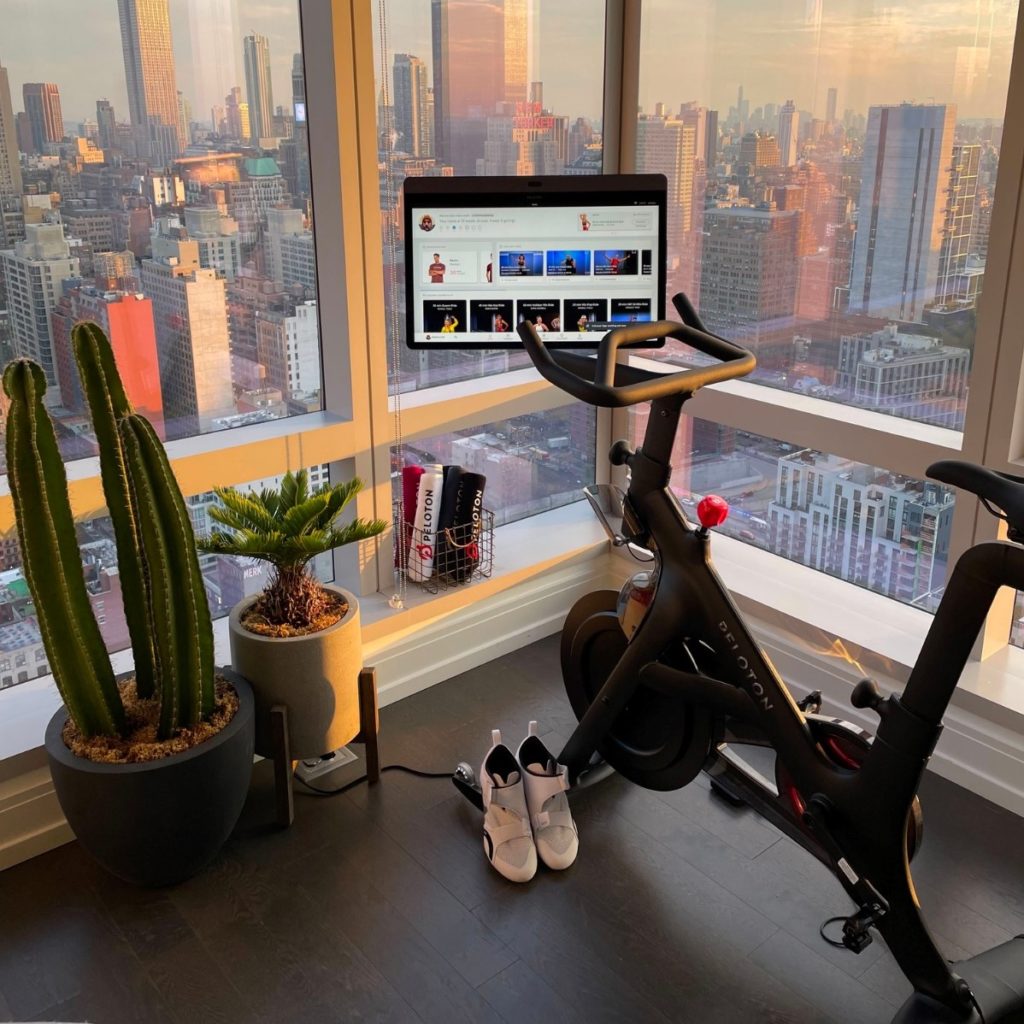
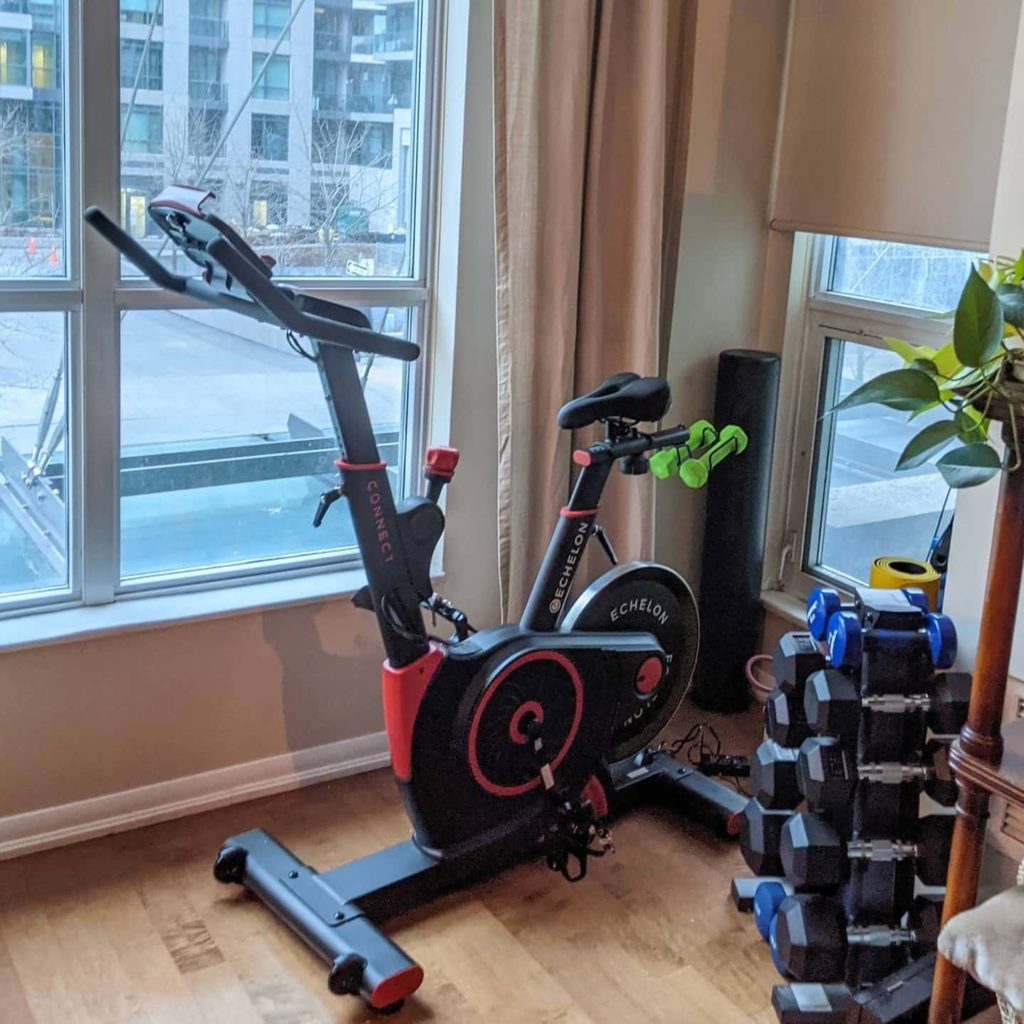
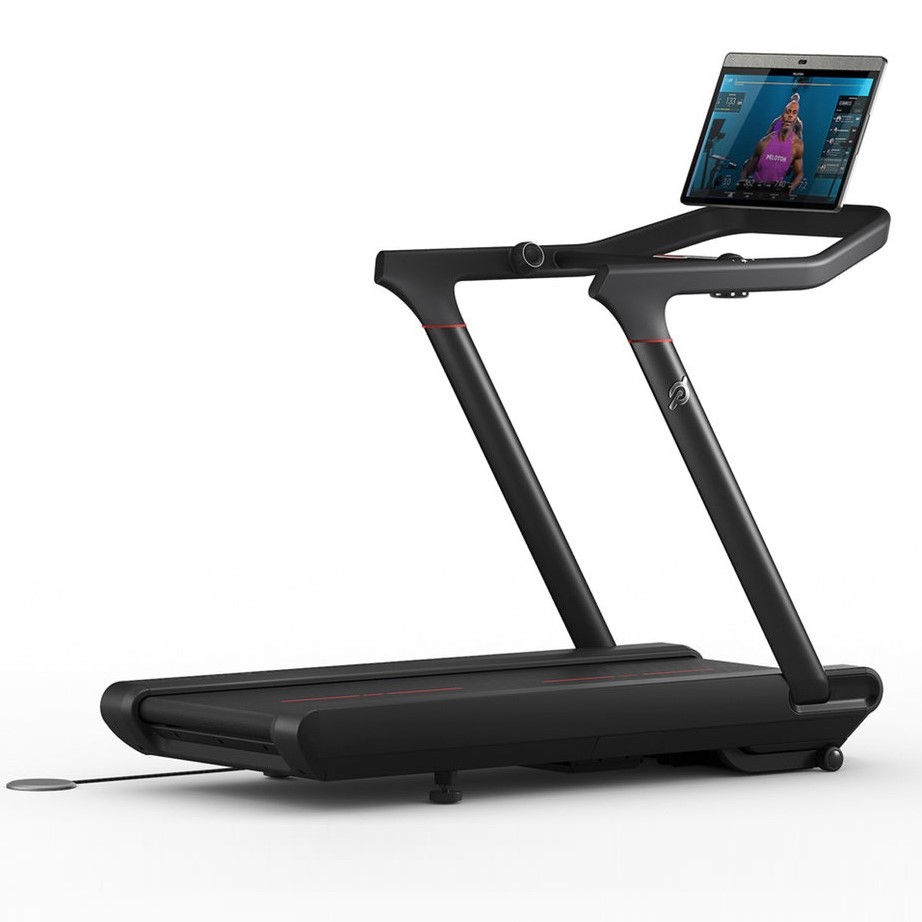
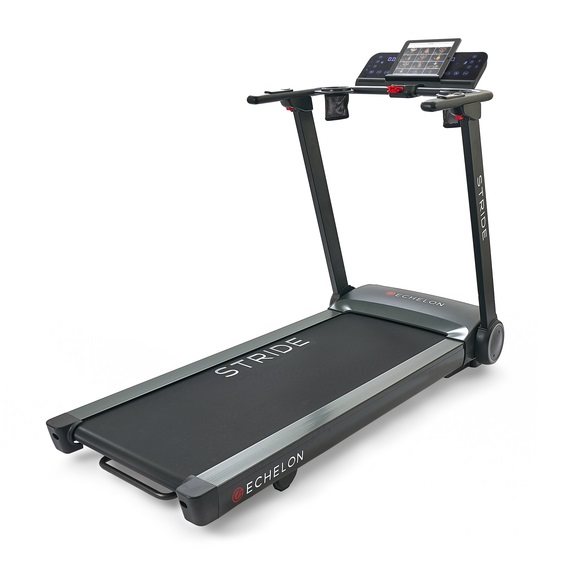
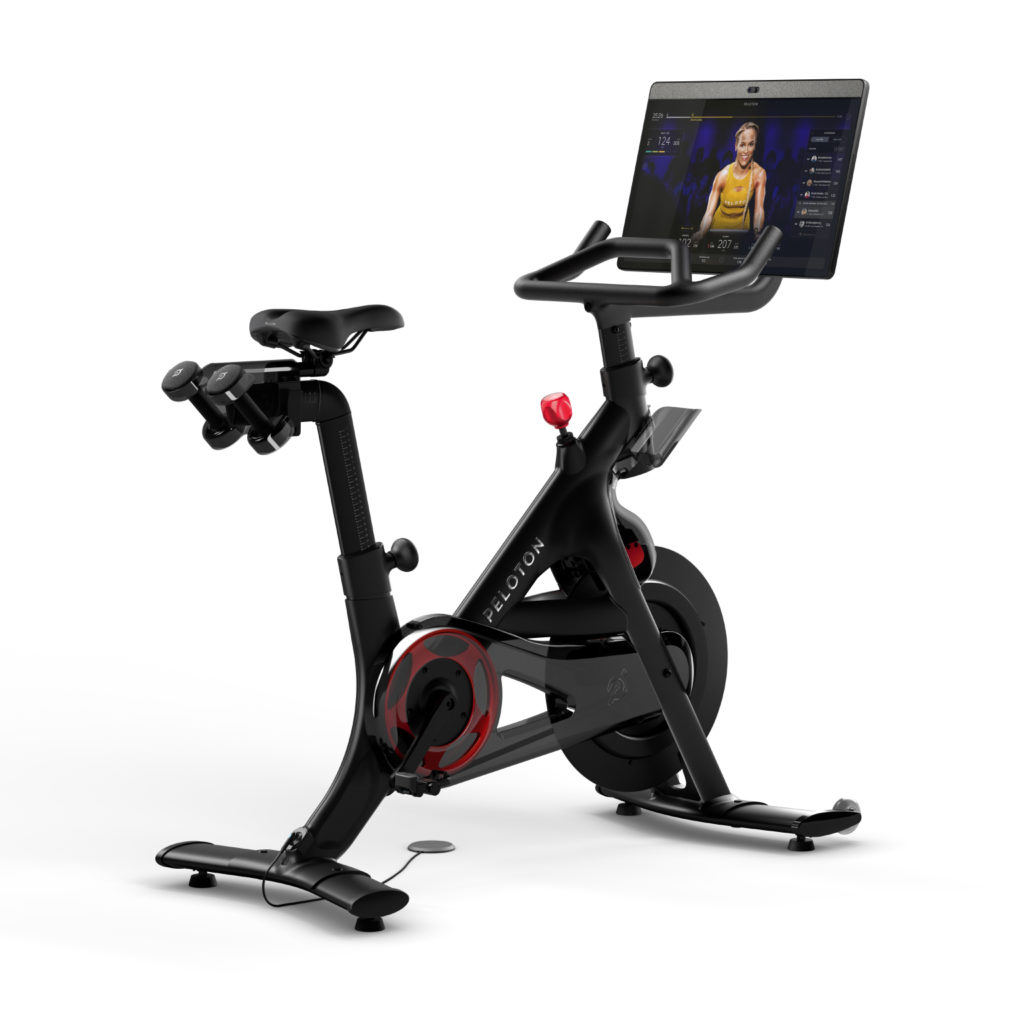
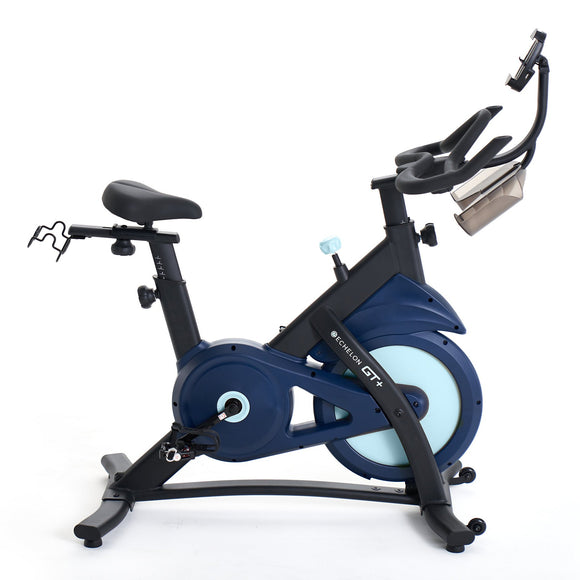
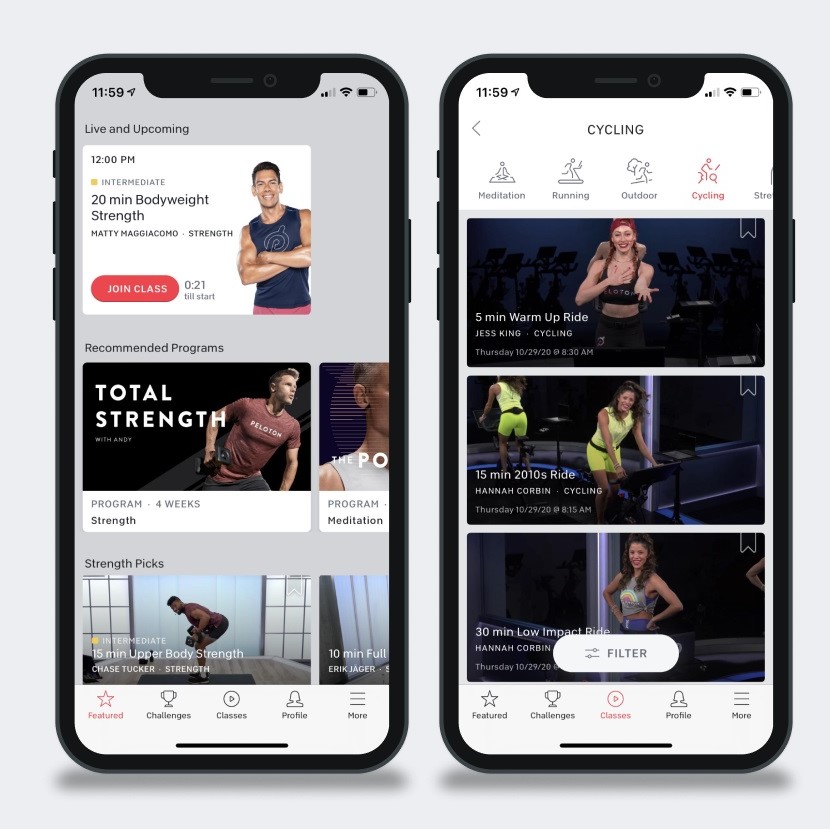


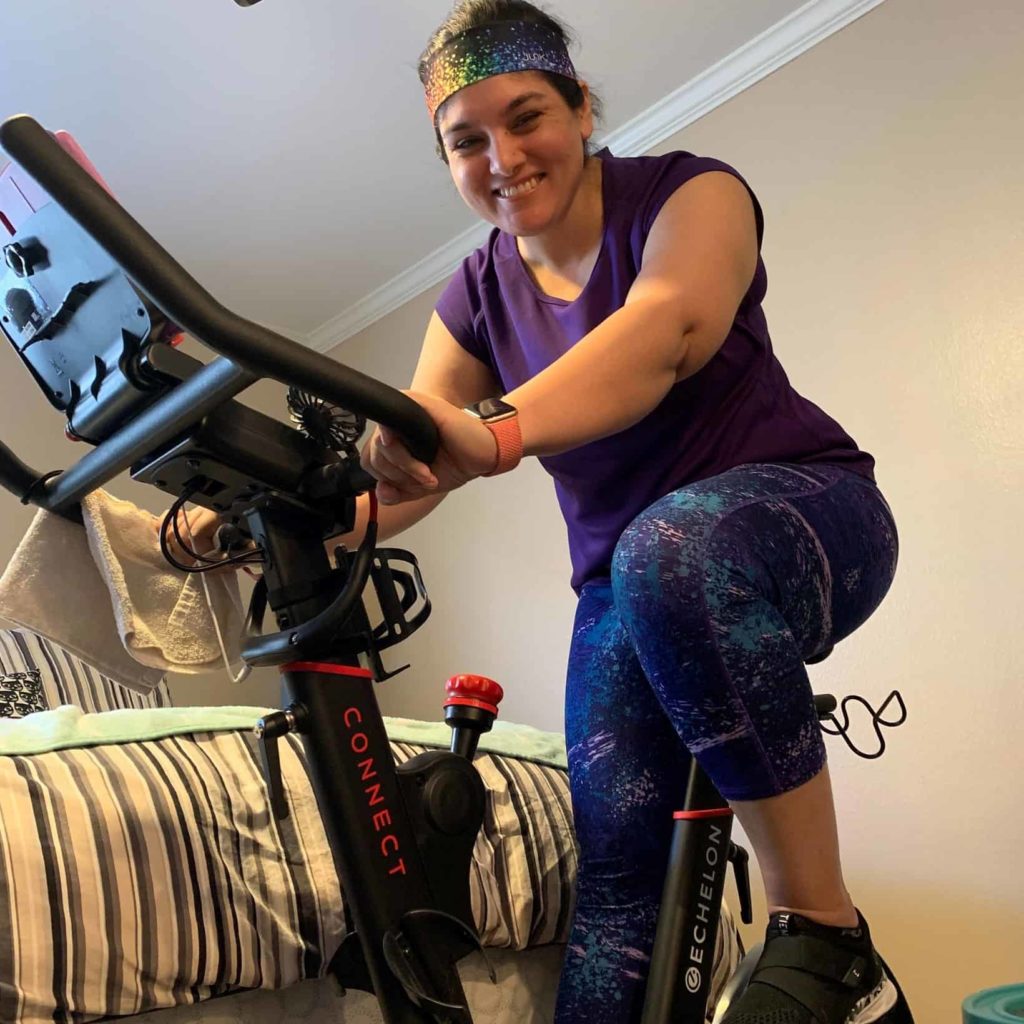

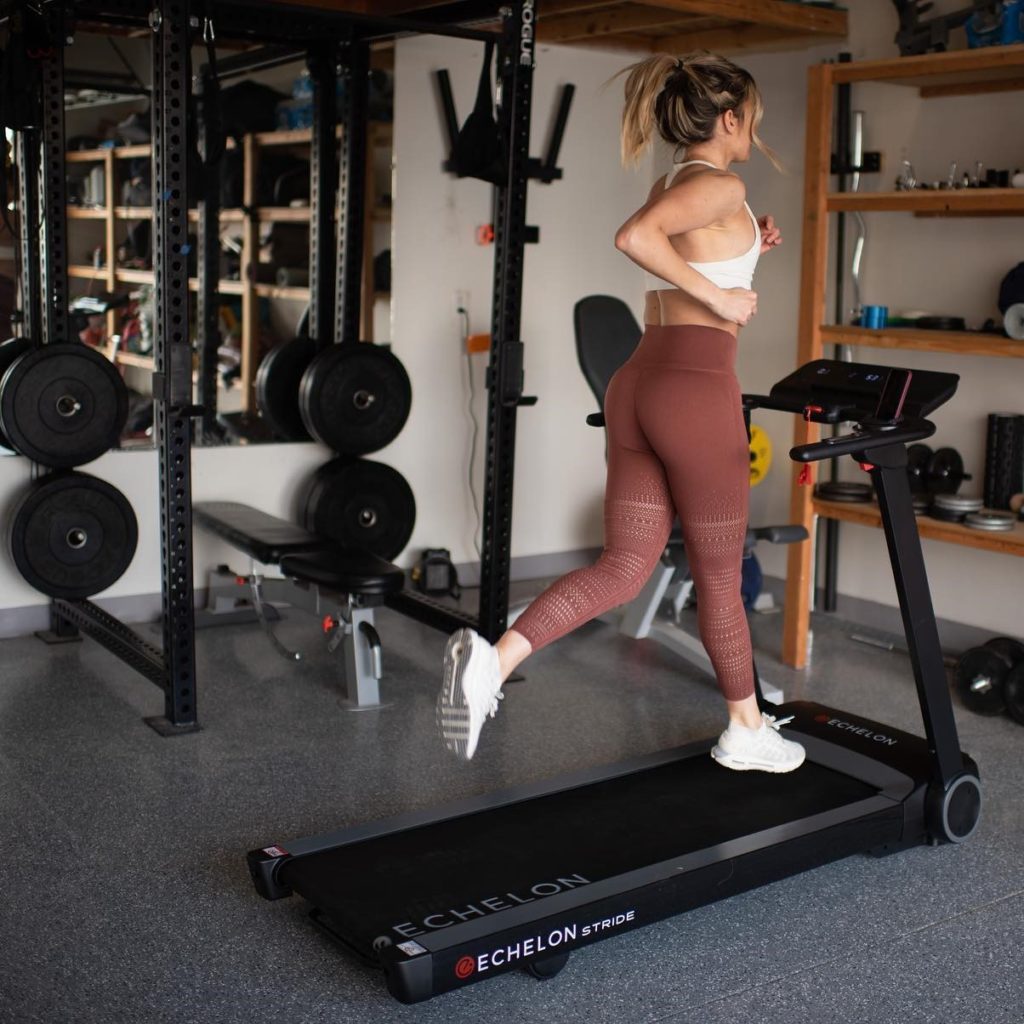
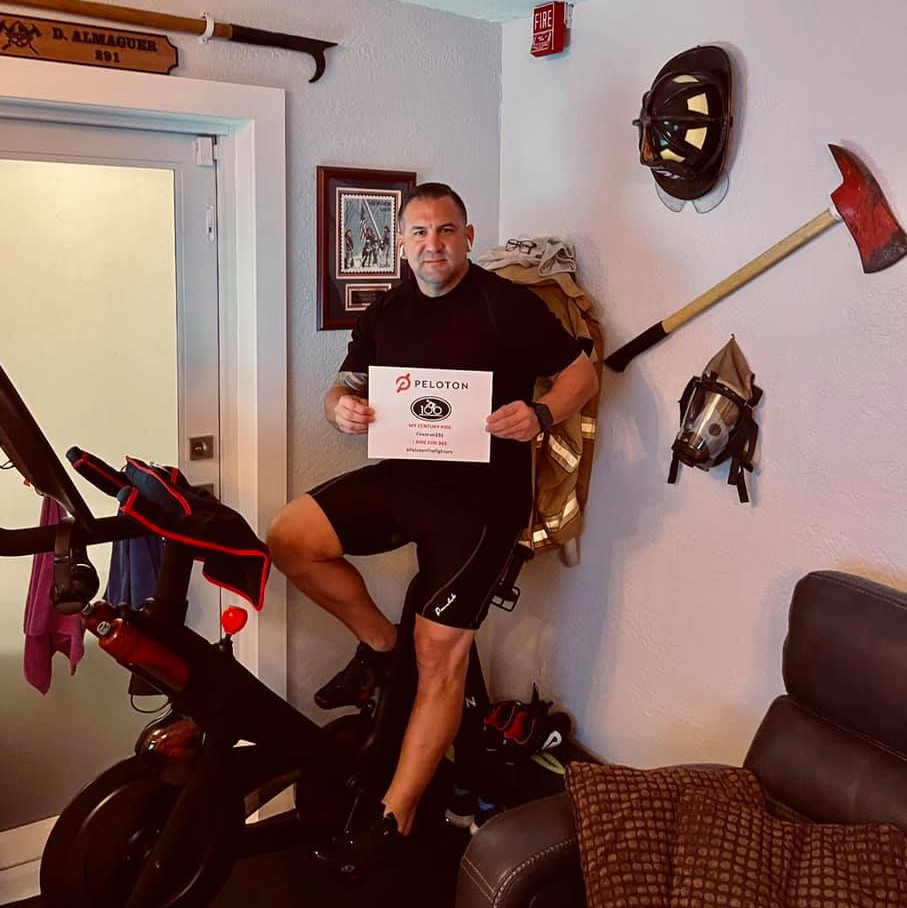






Ask the community or leave a comment
WRITE A REVIEWCustomer Reviews
Leave a review